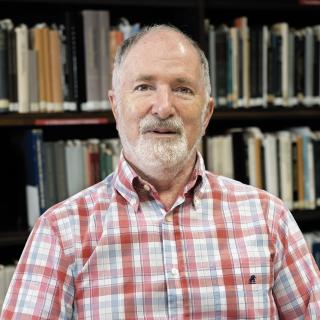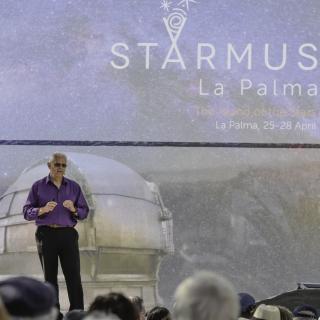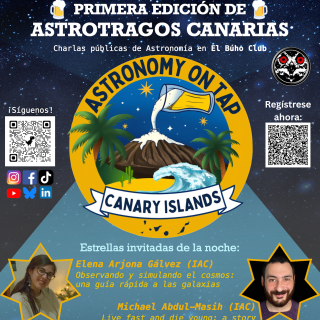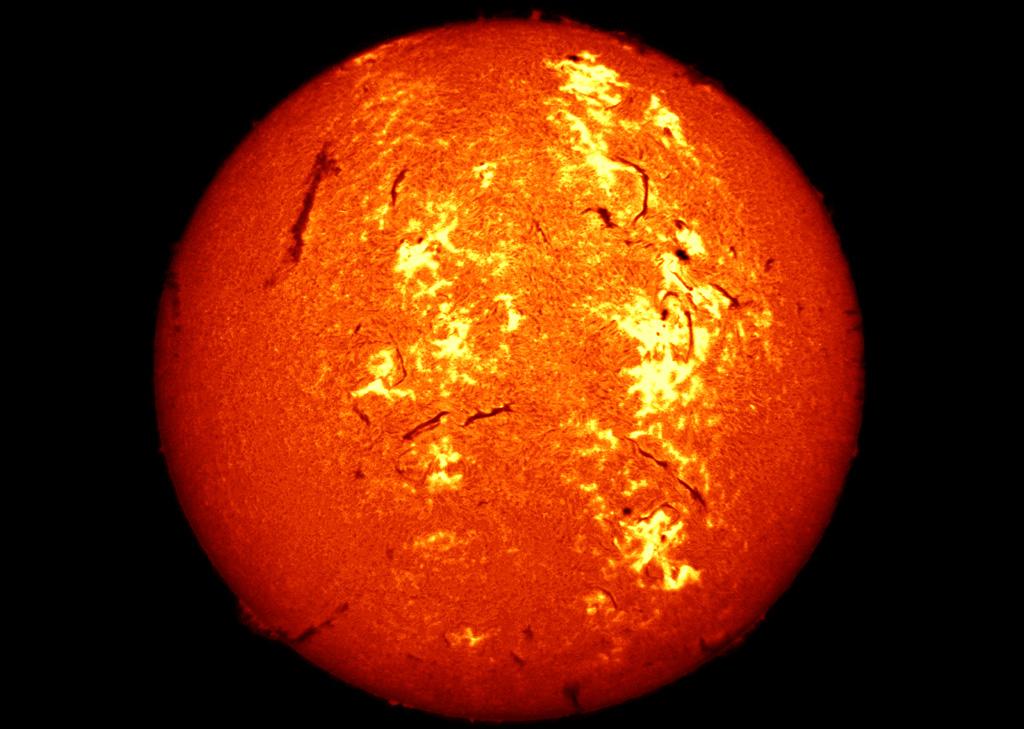It may interest you
-
 John Beckman, Emeritus Research Professor of the Instituto de Astrofísica de Canarias (IAC) has been awarded the Prize for Research of the third edition of the Prizes at the La Orotava Science Fair. This award takes note of the broad and productive career of Beckman in the field of astrophysics, and his key work in the promotion of scientific knowledge from the Canary Islands. After studying Theoretical Physics and Astrophysics at the University of Oxford , Beckman moved to a postdoctoral position at Berkeley (U. California), worked at the Jet Propulsion Laboratory of Caltech , andAdvertised on
John Beckman, Emeritus Research Professor of the Instituto de Astrofísica de Canarias (IAC) has been awarded the Prize for Research of the third edition of the Prizes at the La Orotava Science Fair. This award takes note of the broad and productive career of Beckman in the field of astrophysics, and his key work in the promotion of scientific knowledge from the Canary Islands. After studying Theoretical Physics and Astrophysics at the University of Oxford , Beckman moved to a postdoctoral position at Berkeley (U. California), worked at the Jet Propulsion Laboratory of Caltech , andAdvertised on -
 El Instituto de Astrofísica de Canarias (IAC) participa como colaborador en Starmus Festival que se celebra desde este viernes 25 de abril hasta el lunes 28 en La Palma. El IAC lleva su actividad divulgadora y su conocimiento científico a la agenda de este festival internacional que fusiona ciencia, arte y tecnología de vanguardia. Dentro del programa de Lectures , en el Hotel Meliá La Palma, el director del IAC, Valentín Martínez Pillet, impartirá una charla con el título ‘Living with a star: the good, the bad, and the ugly’. Además, la subdirectora del centro, Eva Villaver Sobrino, formaráAdvertised on
El Instituto de Astrofísica de Canarias (IAC) participa como colaborador en Starmus Festival que se celebra desde este viernes 25 de abril hasta el lunes 28 en La Palma. El IAC lleva su actividad divulgadora y su conocimiento científico a la agenda de este festival internacional que fusiona ciencia, arte y tecnología de vanguardia. Dentro del programa de Lectures , en el Hotel Meliá La Palma, el director del IAC, Valentín Martínez Pillet, impartirá una charla con el título ‘Living with a star: the good, the bad, and the ugly’. Además, la subdirectora del centro, Eva Villaver Sobrino, formaráAdvertised on -
 The Instituto de Astrofísica de Canarias (IAC) announces the arrival of the Astronomy on Tapinternational talk series in Spain, with its very first edition to be held in Tenerife. This outreach initiative, which was created in the United States and has since expanded worldwide, will now take place in the Canary Islands under the name "Astronomy on Tap – Canary Islands” and the local nickname “AstroTragos,” and is carried out within the framework of the EDUCADO and ExGal-Twin projects at IAC. The debut event will be held at the Búho Club (Calle Catedral, 3, La Laguna, Tenerife) on ThursdayAdvertised on
The Instituto de Astrofísica de Canarias (IAC) announces the arrival of the Astronomy on Tapinternational talk series in Spain, with its very first edition to be held in Tenerife. This outreach initiative, which was created in the United States and has since expanded worldwide, will now take place in the Canary Islands under the name "Astronomy on Tap – Canary Islands” and the local nickname “AstroTragos,” and is carried out within the framework of the EDUCADO and ExGal-Twin projects at IAC. The debut event will be held at the Búho Club (Calle Catedral, 3, La Laguna, Tenerife) on ThursdayAdvertised on
